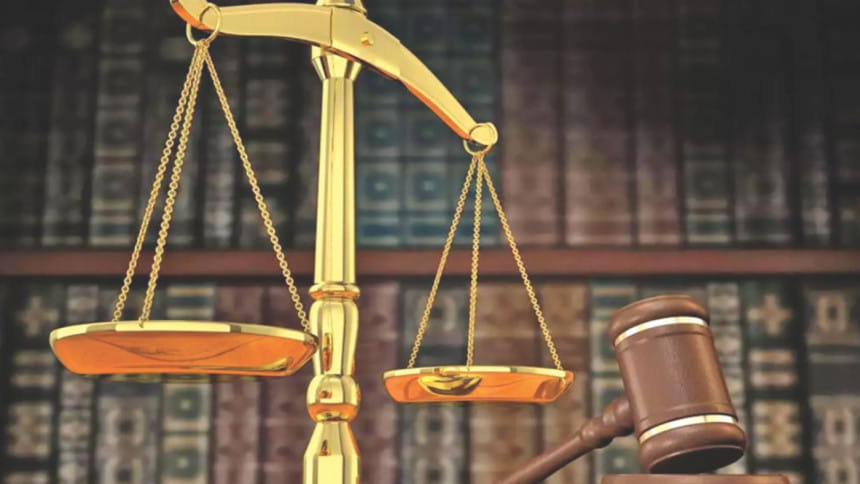16th amendment verdict and the judiciary-executive dissonance

The provision of a Supreme Judicial Council for the removal of judges for misconduct or incapacity has been reinstated in the Constitution following a verdict on the 16th Amendment by the apex court. To recap, the 16th Amendment passed in September 2014 had abolished the Chief Justice-led Supreme Judicial Council and restored parliament's power to remove judges. The amendment was challenged in the High Court, which declared the amendment unconstitutional. In response, the government filed an appeal against the High Court verdict, but the Supreme Court rejected the appeal and upheld the High Court verdict.
The verdict has already generated a lot of heat, as the finance minister commented that parliament would pass the 16th Amendment again. Two former law ministers, belonging to the ruling party, have however said that the Supreme Court's verdict on the amendment was binding on the government under Article 112 of the Constitution. They are of the opinion that the government can only seek a review of the verdict, and that if there is no error in the judgment, the government would have no other option but to implement it.
At the crux of the debate is the concept of separation of powers and specifically the independence of the judicial organ of the state. It also brings to the fore the aspect of immutability of some features of the Constitution and, in particular, as to whether the existence of the Supreme Judicial Council should be treated as an unalterable feature of our Constitution.
Coming to the features of our Constitution it can be said that "the Constitution declares the supremacy of the Constitution and seeks to establish a limited government in the sense that every authority in the Republic had power prescribed and limited by the Constitution." (Constitutional Law of Bangladesh, Mahmudul Islam) It also provides for separation of powers between the three organs of the state—the executive, legislature and judiciary.
In fact, what our Constitution has done, "can be said to be an assignment or distribution of different powers of the Republic to the three organs and it provides for separation of powers in the sense that no one organ could transgress the limits set by the Constitution." (Constitutional Law of Bangladesh)
On the issue of the independence of judiciary, another feature of the Constitution that the appellate division has stated is: "In the matter of appointment of judges under Article 98 and 95 of the Constitution, the convention of consultation having been recognised and acted upon has matured into Constitutional convention and is now Constitutional imperative." (Constitutional Law of Bangladesh)
Judicial review, another feature of our Constitution, gives the guardianship of the Constitution to the Supreme Court. Under its power of judicial review, the Supreme Court can review State actions and can strike down any law for inconsistency with any provision of the Constitution.
It needs to be impressed that since supremacy of the Constitution is a basic feature of our Constitution, "any amendment of the Constitution … in derogation of the supremacy of the Constitution cannot be declared to have been validly taken." (Constitutional Law of Bangladesh, Mahmudul Islam)
In neighbouring India, it has been held that while parliament has the power to amend any part of the Constitution, the power cannot be so exercised as to alter or destroy the basic structure or framework of the Constitution. It has been observed that parliament is only a creature of the Constitution and while the same body periodically stands dissolved and Parliament members retire, the Constitution continues to reign supreme. The Constitution, it is argued, has an identity and integrity of its own and perhaps cannot be made to lose its identity in the process of amendment.
Some jurists hold the view that the Constitution, being a highly evolved organism, cannot be amended without the consent of the people determined by a referendum, or by the summoning of a convention or otherwise. There are countries where the people's will is ascertained on a referendum held upon parliament's proposal to alter the Constitution.
Perhaps it would be appropriate to presume that the supremacy of the Constitution and the unaltered survival of its basic structure are themselves fundamental features of our Constitution. To this writer, it appears that our apex court is of the view that the parliament has no competence to alter the fundamental features of the Constitution and that doing so would amount to an act of Constitutional impertinence. The retention of the Supreme Judicial Council, through striking the 16th Amendment, has to be seen in that light.
A reasoned view would perhaps be that there must not be any effort to destroy the balance of power between the legislature and the judiciary. It is the function of the Supreme Court to remove legal inconsistencies and that function cannot be taken away from this institution which is the final interpreter of the fundamental law.
Muhammad Nurul Huda is a former IGP and a columnist of The Daily Star.





Comments